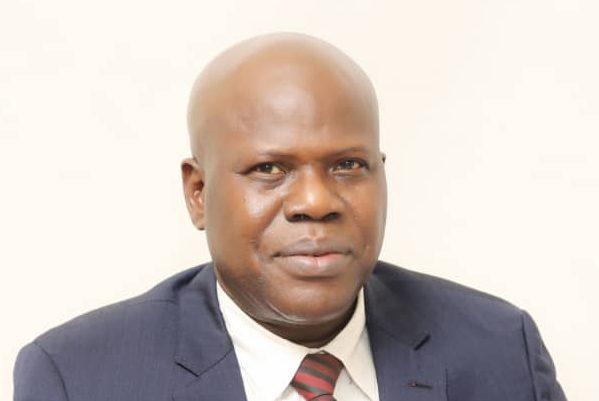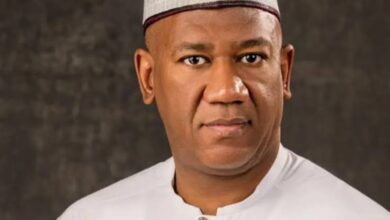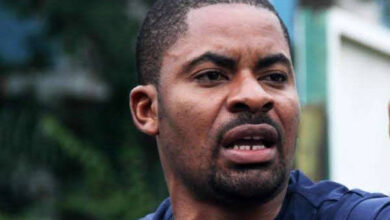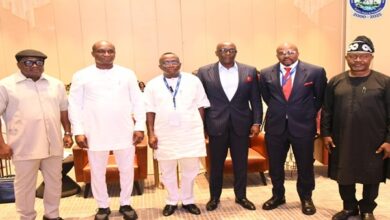A failure or work-in-progress?, by Richard Odusanya |

Let’s begin with a “positive inference” from our former President Olusegun Aremu Obasanjo, a Nigerian former army general and statesman who served as Nigeria’s head of state from 1976 to 1979 and later as its president from 1999 to 2007.
Regrettably on several occasions, Obasanjo expressed serious reservations about issues of governance and its negative effects on the citizens of the countries in Africa. Obasanjo posited: “Let me go back to the beginning where we got it wrong—the western liberal democracy, that is what the Europeans have. When you look at the western liberal democracy, it is a product of their history, a product of their culture, a product of their way of life.”
The thrust of this message is that, selectively, ex-President Obasanjo largely glossed over his own tenure. which was marked by so many controversies
The former president continued: “What Africa was practicing today was a mere reflection of ‘representative democracy.’ Furthermore, Abraham Lincoln describes it as a government of the people, by and for the people. But what do we have today? The Greek democracy affects everyone. Democracy has now become a representative democracy, and it hasn’t taken care of everyone. Democracy in Africa has failed because it’s not African, it doesn’t have our culture and way of life. You will say: ‘Go to court,’ when you know that you can’t get justice. Democracy is dying in Africa, and to save it, it should be made in the context of Africa.”


Obasanjo and others concluded that democracy is no longer working in Nigeria. In a keynote address titled: “Is Democracy Failing in Africa?”, Catholic Bishop of Sokoto Diocese, Matthew Hassan Kukah, lamented that it seemed like Nigeria’s democracy only worked for a few selected persons.
The cleric also noted that such feelings had fuelled a debate on the suitability of the Nigerian Constitution, which had constantly put pressure on the judiciary.
He said: “We as Africans inherited a system that is not ours, but we can’t say it is not relevant to us. There are differences between democracy in Asia and that of Africa. I feel sorry for the judges. At the last election, even small me, had people calling me, complaining, talking to this, talking to that.
“There was pressure on judges to deliver justice. I agree that there’s an urgent need to clean up the mess. Democracy is about everything, and it’s about justice. Democracy and its principles are endless contests. There are certain things God has given us which people can’t control.”
Following from above, the postulations of the former President Obasanjo and some stakeholders resonates with me, given that, I have also canvassed similar position in the past which was well captured in an article: “NIGERIA FEDERAL STRUCTURE: THE NEED TO DOWNSIZE.” After all, we are neither westerners, nor easterners/anything else, but Africans/Nigerians. We need a system in which all six geopolitical and geo-cultural regions of the country should be allowed to have their preferred government type, and the centre, if it has to exist, just has representatives from the different regions. It is like all countries in Europe have their preferred government and send people to the European Union! For me, this is the only type of governance structure that can work for us.
In my opinion, democracy is not something you “decide” to install somewhere. It can only be the result of a process that goes through establishing good social, economic, and political practices in a society, such as equity, honesty, education, various freedoms (of expression, religion, etc.), and an (at least) acceptable level of PROSPERITY. Also, a series of coups in recent years has prompted much discussion about the state of democracy in Africa.
Conclusively, as a new bill for an Act to alter the provisions of the Constitution of the Federal Republic of Nigeria, 1999, to provide for the office of the Prime Minister as head of government and the office of President as head of state and to provide for a framework for the mode of election to the said offices, has passed second reading in the House of Representatives. I’d like to share with you an excerpt from one of my articles widely published over a decade ago:
Also Read
“NIGERIA FEDERAL STRUCTURE: THE NEED TO DOWNSIZE” published by Sahara reporters, Vanguard newspaper, and many others on 9th of April 2014. Find below an excerpt from the article: “As the ongoing National Conference gathers momentum, many Nigerians have been making good contributions towards the improvement of our system of governance. Some have argued for the scrapping of the Presidential System because it is expensive to run, and revert to the Westminster Parliamentary model that was bequeathed to us by our former British Colonial Masters in 1960. Although we agree that the Presidential system is expensive, it is in this system that Democracy is best practiced because of the practice of separation of powers. In a Parliamentary system, there is no separation of powers; rather, we have a fusion of powers. Members of the Executive arm are drawn from the Parliament, and as such, there are no checks and balances. This system thrives in Britain because the UK is a Monarchy where Her Majesty the Queen serves as the Head of State and a symbol of Unity and Sovereignty.”
Finally, the question of democracy failure or otherwise is rooted in the quality of our decisions collectively. Bearing in mind the sociocultural, economic effects and the natural results of adopting a new system of governance, these effects might be positive or negative, and may bring unexpected results. Therefore, the NASS should consider inputs from stakeholders before the passage of the bill on the governance system, so as to avoid the pitfalls of the past.
. Odusanya can be reached at odusanyagold@gmail.com.
Post Views: 33






